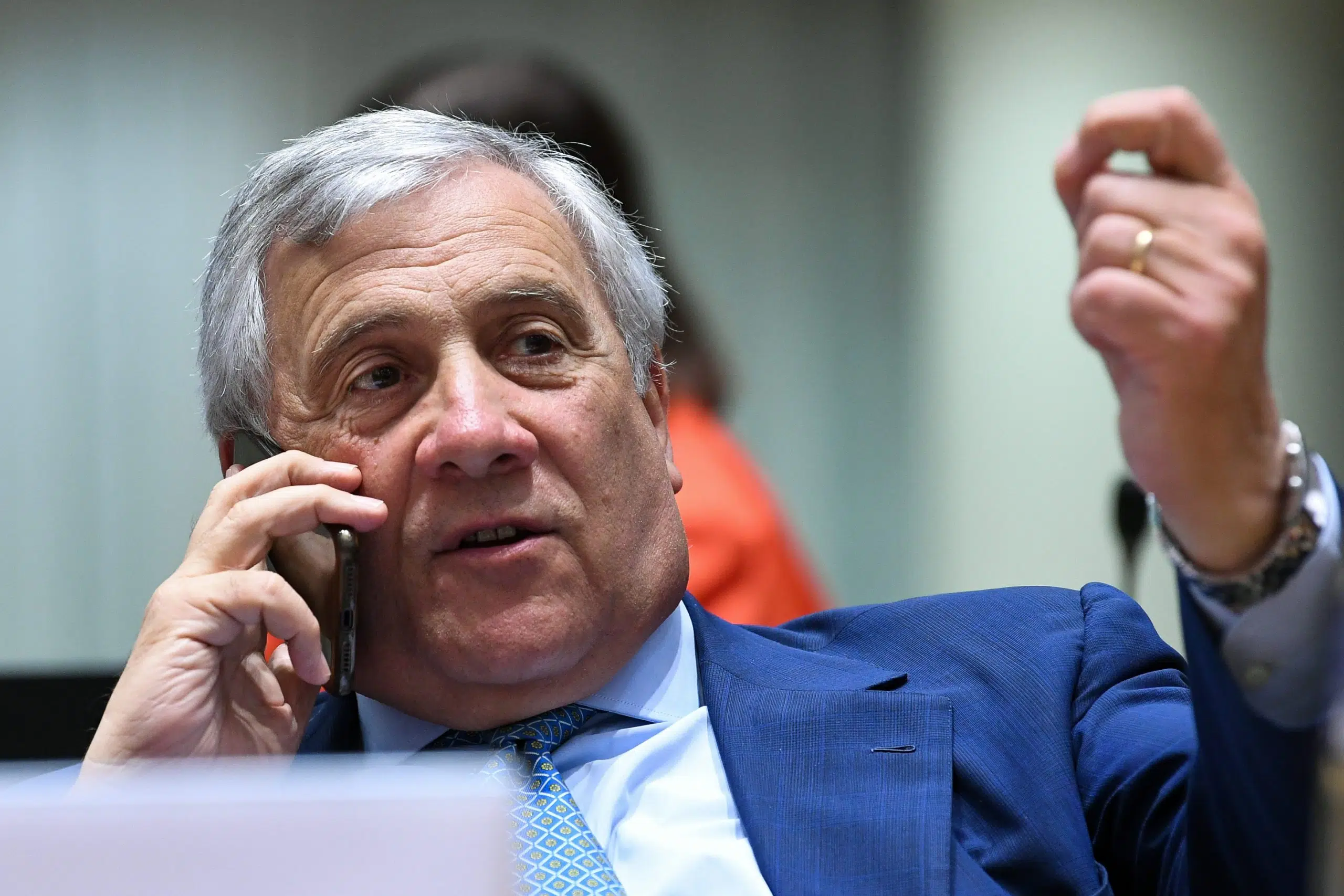Brussels – Italy puffs up its chest and celebrates the launch of the European ship mission in the Red Sea. Greece has been given command of Operation EUNAVFOR ASPIDES, but Italian Navy Rear Admiral Stefano Costantino will be directing the moves in the waters threatened by the Houthis. “We were the country that more than any other insisted that there should be a military mission to protect merchant traffic,” claimed Italian Vice-Premier Antonio Tajani from Brussels.
EU foreign ministers today (Feb. 19) launched the defensive maritime security operation that will aim to restore and safeguard freedom of navigation in the Red Sea and Gulf of Aden, where pro-Iranian Yemeni rebels have attacked dozens of cargo vessels since late November in response to Israeli bombings in Gaza. The latest, claimed by the Houthis, just today against a Belize-flagged but UK-registered merchant ship operated from Lebanon, which was hit in the Bab el-Mandeb Strait off the coast of Yemen, while from the United Arab Emirates it was bound for Varna, Bulgaria.
ASPIDES will “provide maritime situational awareness, accompany ships and protect them from possible multimodal attacks at sea,” reads the statement of the EU Council, responding to air strikes, such as shooting down drones and missiles, or threats at sea. But, as reiterated by the EU External Action Service (EEAS), ASPIDES will never conduct operations on Yemeni territory. The mission will have a wide range of operations: active along the main sea lines of communication in the Baab al-Mandab Strait and the Strait of Hormuz, as well as in the international waters of the Red Sea, Gulf of Aden, Arabian Sea, Gulf of Oman, and the Persian Gulf.
Greek Commodore Vasilios Griparis will command the operation, while Rear Admiral Stephen Constantine will oversee the naval force. The headquarters will be based in Larissa, Greece. The Italian Navy will lead the European contingent (currently consisting of three ships) from the destroyer Caio Duilio. As for Rome’s effort, however, “it will be the Defense Ministry that will decide how the contingent will be composed,” Foreign Minister Antonio Tajani clarified.
The deputy prime minister and leader of Forza Italia called the mission “an Italian success”, stressing the “strong message” that Italy thus sends “to a system that is suffering damage, the port system.” Indeed, 40 per cent of Italy’s maritime traffic passes through the Suez Canal. But the Egyptian strait has a weight on the global economy, not only the Italian one: it accounts for 12 per cent of world trade in goods transits, a figure that increases to 30 per cent if containers are considered.

For now, ASPIDES, in addition to Greece and Italy, will be joined by France, with the role of deputy in field operations, and Germany. But the year-long mission may be expanded not only to other member countries (Romania has reportedly given its willingness to participate), but also to non-EU and non-NATO countries.
“Great news,” commented the President of the European Council, Charles Michel. At the same time, Ursula von der Leyen wrote in a post on X, “Beyond crisis response, this is a step toward a stronger European presence at sea to protect our European interests.” An “important step toward a common European defence,” Tajani echoed her.
English version by the Translation Service of Withub


![L'UE annuncia revisioni al ribasso per le stime di crescita [foto: imagoeconomica]](https://www.eunews.it/wp-content/uploads/2022/07/Imagoeconomica_1730466-scaled.jpg.webp)





